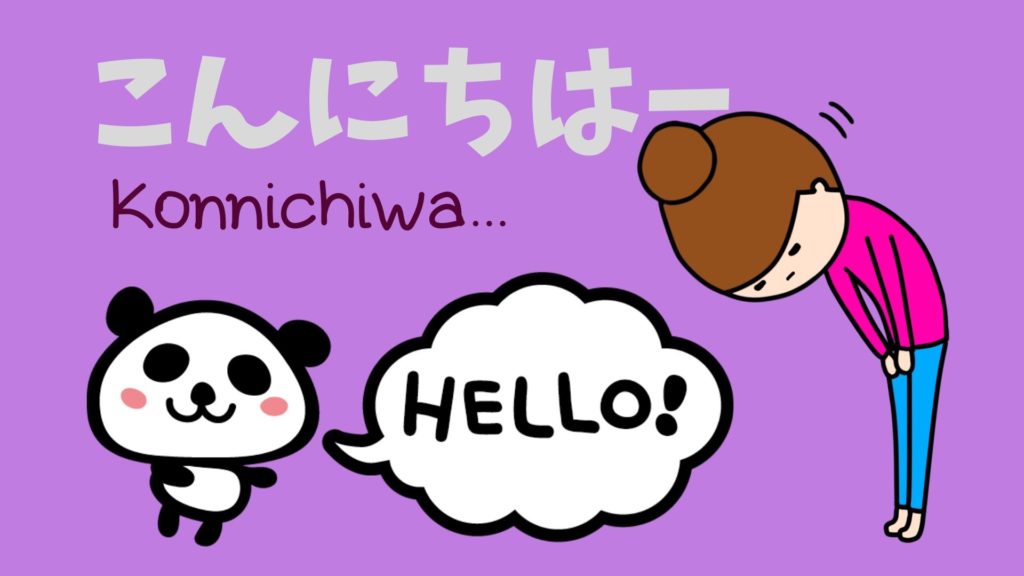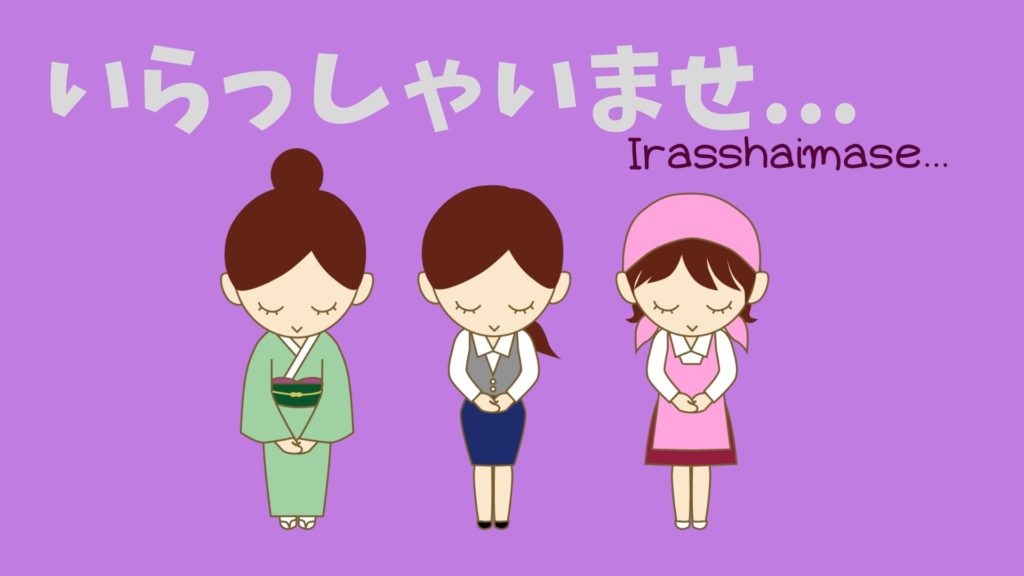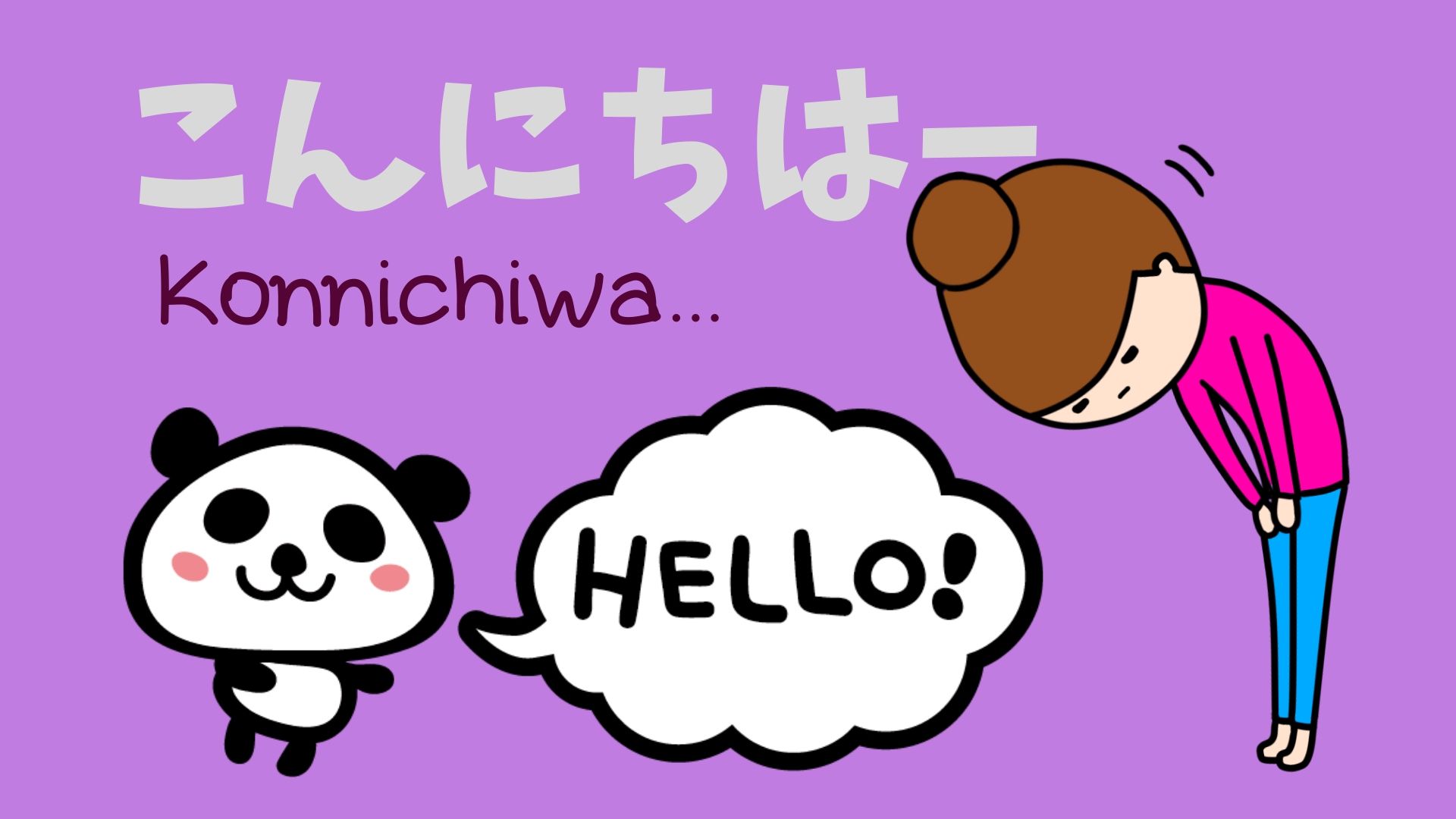When you start learning Japanese, you might first want to know how to say “Hello” in Japanese. “Hello” in Japanese can be different depending on the time of the day and situation.
I would like to introduce to the different ways to say hello. You don’t have to remember all of them, but it would be better to be able to understand the words when you hear them.
こんにちはKonnichiwa

This is the basic greeting word in Japanese. “こんにちはKonnichiwa” can be “Hello” or “Good afternoon”. We use this word during the daytime, but people still understand even though you say “こんにちはKonnichiwa” in the late morning or evening.
You can say “こんにちはKonnichiwa” in almost any situation.
おはようOhayō
“おはようOhayō” means “Good morning”. It is a greeting word to be used in the morning. “おはようOhayō” ends with a long vowel “ō”, but it’s often pronounced “おはよOhayo” with a short vowel “o” in the conversation.
“おはようOhayō” is a casual way to say. It is better to say “おはようございますOhayou gozaimasu” in a formal situation.
These words can be used in any situation. It is very natural to say “おはようOhayō” or “おはようございますOhayou gozaimasu” in the office when people meet their colleagues or bosses in the morning. In fact you must use “おはようございますOhayou gozaimasu” when you speak to your boss in the morning.
I don’t think many Japanese people say “こんにちはKonnichiwa” or “こんばんはKonbanwa (see the next section)” to their colleagues or bosses in the working place, even if it is not in the morning. Furthermore, you may hear someone say “おはようございますOhayou gozaimasu” at night.
“おはようございますOhayou gozaimasu” is sometimes used as a greeting when you start working and can be any time of the day. Nowadays, people’s lifestyles differ. Night shift workers may say “おはようございますOhayou gozaimasu” to each other at the beginning of their work, no matter what time it is.
こんばんはKonbanwa
“こんばんはKonbanwa” is a greeting for the evening and night, meaning “Good evening”.
“おはようございますOhayou gozaimasu/おはようOhayo” “こんにちはKonnichiwa” and “こんばんはKonbanwa” are used depending on the time of the day.
| おはようございますOhayou gozaimasu おはようOhayō | morning |
| こんにちはKonnichiwa | afternoon |
| こんばんはKonbanwa | evening and night |
やあYā!/ようYō!/どうもDōmo (impolite)
These words are not polite, or can even be very rude. So, I don’t recommend you use them, but you can hear them in a casual conversation, on TV, or in films. “やあYā!” and “ようYō!” mean “Hi!” and are more often used by men. “どうもDōmo” can also be used meaning “Hello” and it doesn’t sound very friendly (and is rude).
いらっしゃいませIrrashaimase

When you enter shops or restaurants, you will hear people saying “いらっしゃいませIrrashaimase” out loud. It means “Hello! Welcome”. It’s not always necessary to respond to “いらっしゃいませIrrashaimase”, but you can say “こんにちはKonnichiwa” or “こんばんはKonbanwa” if you want to answer.
ただいまTadaima/おかえりOkaeri
In Japanese families, when someone comes home, they say “ただいまTadaima” and “おかえりOkaeri” to each other instead of saying “Hello”.
The one who is coming home says “ただいまTadaima” and the one who is already at home says “おかえりOkaeri”. If I have to translate them into English, “ただいまTadaima” will be “I’m home!” and “おかえりOkaeri” will be “Welcome back!” These phrases are also commonly heard in TV series or films.
| ただいまTadaima | the one who is coming back home |
| おかえりOkaeri | the one who is already at home |
Those words are mainly used at home, but sometimes they are used at the office too, when someone has just come back from other places e.g. their suppliers, customers or clients.
Additionally, there are some hotels where the receptionist say “おかえりなさいませOkaeri nasaimase”, which is the most polite version of “おかえりOkaeri”, to their guests when they come back to the hotel in the evening.
This is a part of the service to make their guests feel at home in their hotels.
Do we have to bow when greeting?
You may spot Japanese people bowing when they say “Hello”. Some people do deeply, and others do lightly. They bow to show their respect to the others.
It’s natural for Japanese people to bow when greeting, but as a traveller, you don’t have to bow to them, although you would look more like a Japanese person if you can slightly nod your head while saying “こんにちはKonnichiwa”.




Comments